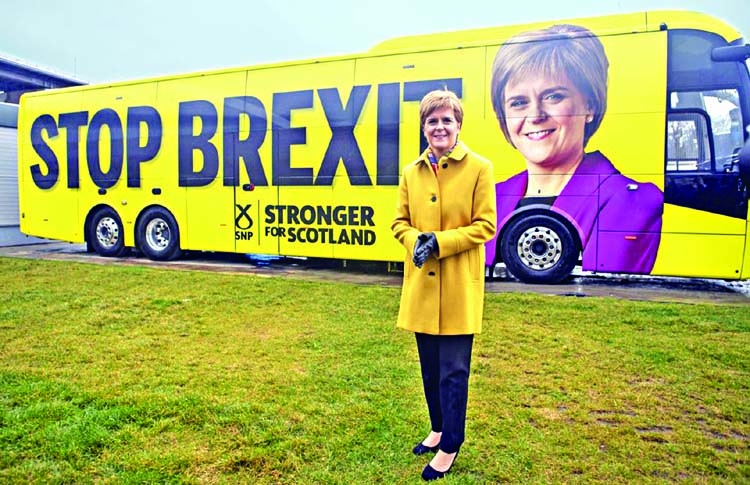Independence not on ballot, but on voters' minds

Ask voters in this picturesque university town in eastern Scotland how they're voting in next week's election, and they're likely to transition seamlessly from talking about which candidate they want to send to Parliament to discussing whether or not they want another bite at voting for Scottish independence, which voters rejected in 2014.
The question of Scotland's independence from the rest of the United Kingdom is not on the ballot, but it's uppermost in the minds of many voters in St. Andrews, and elsewhere in Scotland, as they make their final choices.
That's because the decision to take the United Kingdom out of the European Union known as Brexit has upended the political landscape and exposed old divisions among England, Scotland, Wales and Northern Ireland, fraying the ties that bind the UK. In Scotland, that means talk of independence. In Northern Ireland, it means fears that the sectarian violence that plagued it for decades could return.
These issues, and Brexit itself, are just below the surface in the Dec. 12 general election. Rarely has an election been so fraught with implications for the future of the United Kingdom, a structure often taken for granted because of its familiar symbols the queen who has reigned for more than six decades, the Parliament that is centuries old but is vulnerable as it engineers a radical change in its relations with the rest of Europe.
Voters in Scotland overwhelmingly chose to remain in the EU in the 2016 referendum, so it's fair to say Scotland is being dragged through Brexit against its will.
